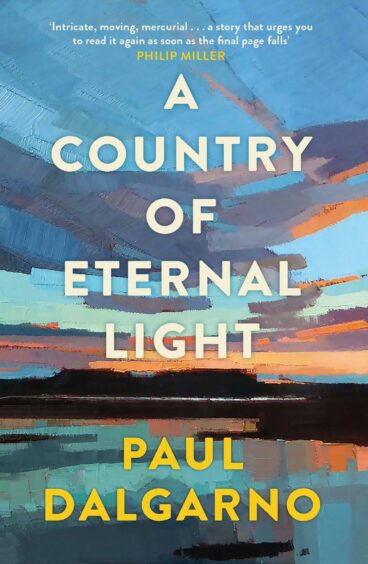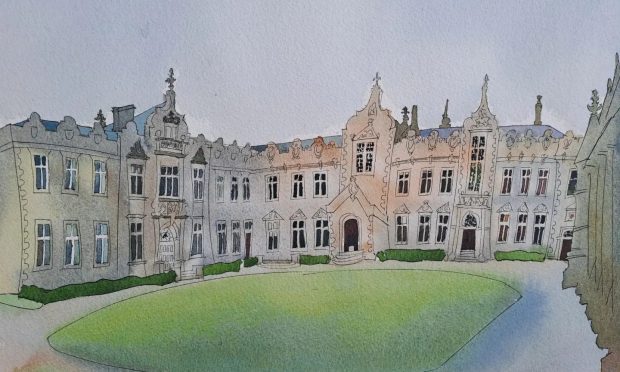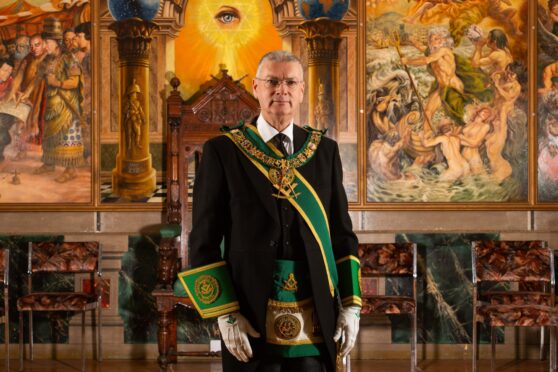He left school at 14 with no qualification and no interest in reading but a love for music inspired Paul Dalgarno to go back to school to study English literature. Now the Aberdeen-born writer and journalist has published his first novel in the UK.
A Country of Eternal Light dips in and out of various episodes in the life of narrator Margaret Bryce, “who has been having a hard time since dying in 2014.”
Paul is now based in Australia, having moved to Melbourne with his Australian wife (who was 36 weeks pregnant at the time!) and one-year-old in 2010.
It’s easy to assume that writers are all dedicated bookworms since their early years but this certainly wasn’t the case for Paul. “I didn’t really read anything growing up,” he admits, “Maybe just things like Tintin or Asterix and Obelix, but even then, I was mostly looking at the pictures.”
Having grown up in quite a poor part of Aberdeen, Paul remembers that. “When we moved to an ostensibly better neighbourhood at the start of my teens, I went off the rails, behaving very badly and getting into all sorts of trouble.
“I left school at 14, with no qualifications, to become a painter and decorator’s apprentice, and then a service engineer, fixing washing machines, ovens and tumble dryers. Mainly because I’d got really into music and lyrics (and especially Bob Dylan), I took a night class in English literature and worked towards getting my first Higher. The next year, I took three more Highers and got into Aberdeen Uni, where I studied English Literature and Hispanic Studies.”
Now writing is his mainstay, he worked as a journalist in Scotland for five years before making the move to Australia where he was a launch editor and of The Conversation website and has had four books published in Australia and New Zealand.
A Country of Eternal Light is his first novel to publish in the UK and Paul says, “It feels like a really nice homecoming to have the book coming out with an Edinburgh publisher.
“I feel hugely connected to Scotland still. During the seemingly endless Covid lockdowns in Melbourne, I had a real sadness thinking I couldn’t get back and started wondering if I ever would again.”
According to Paul, the character of Margaret Bryce is in part inspired by his mother: “Margaret is partially inspired by my mum, and also, in part, by my paternal grandma and maternal grandad – both of whom were great autodidacts,” he explains.
“As Margaret says early on in the book, there’s a long tradition of people assuming working class people’s brains are inferior, as opposed to the awareness that structural issues often prevent people from taking certain paths.
“My gran used to say things like, ‘I’d have loved to have gone to university … if I’d had the brains’, and I always replied with versions of, ‘You’re way smarter than most people I’ve met at university, including me’, but I don’t think she ever truly believed me.
“I wanted Margaret, and the book more broadly, to honour those people in my life and everyone else like them, who shine brightly without ever properly realising it.”
The book has been a long time in the writing, with the early stages dating back to 2012. “It wasn’t until 2021 that Margaret really started working as a character.
“There’s a risk in creating any character that they become a caricature, and that’s how I felt about Margaret for a very long time.
“Eventually I got to grips with something that was actually pretty obvious: regardless of gender, age or background, we’re all 99.9% the same. Focussing on our commonality rather than our teeny differences helped bring Margaret fully out of her shell.”
Writing from the perspective of a dead person raises all sorts of questions, is she in limbo, some sort of afterlife? Paul doesn’t answer that query entirely, “Some early readers have described her as a ghost, and that’s fine,” he comments, “but I don’t see her as one: I just think of her as being both dead and alive.
“The book’s main theme is complicated grief, a condition most commonly triggered when you’re not able to see a loved one’s body, or attend their funeral, say, after they die.
“In my case, that’s happened three times, for different reasons, since I moved to Australia: my maternal gran’s death in 2012, my mum’s in 2014, and my paternal grandad’s in 2021.
“In that type of scenario, you basically have to take it as given that someone is dead based on what you’ve been told, but part of you can’t help thinking they’re still alive somehow, especially if they seemed relatively fine the last time you saw them.”
A Country of Eternal Light also revisits important events that unfolded during and after the protagonist’s lifetime. From Piper Alpha to Covid, we see her reaction, as Paul says, “For Margaret, that summer of the Piper Alpha, 1988, is a time she keeps returning to throughout the book, a summer, as she says, of tears.
“Covid and Australia’s Black Summer bushfires, meanwhile, happen years after Margaret’s death. She sees people wearing facemasks but doesn’t know why.”
The story’s timeline is complicated, and Paul points out that, “As in grief, Margaret’s sense of time is disordered, with scenes from her past presenting themselves out of sequence, and things that might not have seemed important the first time round coming back for a second or third go – the main difference being she’s revisiting those times rather than remembering them, but with a similar lack of control.
“As to where Margaret might be now, I don’t know: in the book, for sure, and in readers’ hearts and heads.”
Having published A Country of Eternal Light and another book, Prudish Nation in Australia this year, Paul admits that he could do with “a little rest” but he won’t put his pen aside for long, he has an idea for another novel which is currently in the hands of his publisher.
A Country of Eternal Light by Paul Dalgarno is out now, £9.99.
Catch him at Waterstones, Dundee on August 8.











